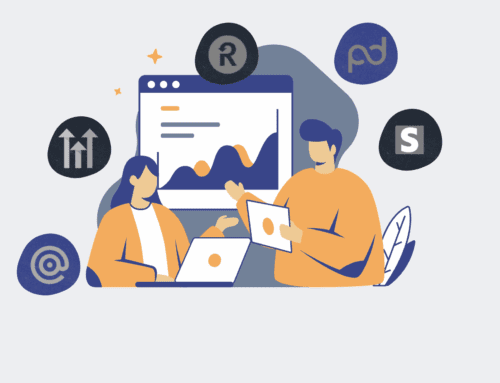The Unseen Implications: Navigating Ethical AI in Automated Interview Processes
In today’s rapidly evolving business landscape, the integration of Artificial Intelligence (AI) into recruitment processes has moved from a futuristic concept to a practical necessity for many organizations. Automated interview systems promise unparalleled efficiency, reducing time-to-hire and streamlining candidate screening. Yet, beneath the surface of these technological advancements lies a complex web of ethical considerations that demand meticulous attention from business leaders. Ignoring these can lead to significant reputational damage, legal challenges, and, critically, the erosion of trust.
At 4Spot Consulting, we regularly engage with organizations eager to leverage AI for strategic talent acquisition. Our experience has shown that while the allure of automation is strong, a thoughtful, human-centric approach to its implementation is paramount, especially when dealing with the nuanced world of human potential. The ethical backbone of an automated interview system dictates its true value and sustainability.
Addressing Algorithmic Bias: Ensuring Fairness from the First Interaction
One of the most pressing ethical concerns with automated interviews is algorithmic bias. AI systems learn from historical data, and if that data reflects existing societal or organizational biases, the AI will inevitably perpetuate and even amplify them. This could manifest in systems favoring candidates with specific demographic profiles, educational backgrounds, or even speech patterns, inadvertently discriminating against qualified individuals from diverse groups.
Consider an AI trained on past hiring decisions where a particular gender or ethnicity was historically overlooked for certain roles. The AI, in its pursuit of patterns, might mistakenly identify these demographic traits as indicators of lower suitability, leading to a system that systematically disadvantages certain groups. The consequence? A less diverse workforce, missed talent opportunities, and potential legal repercussions under anti-discrimination laws. For leaders, the imperative is clear: demand transparency in how AI models are trained and regularly audit their performance against diverse candidate pools. This isn’t just about compliance; it’s about building an equitable and innovative team.
Transparency and Explainability: Demystifying the Black Box
Another critical ethical dimension is the lack of transparency and explainability in many AI-powered interview tools. Candidates often interact with systems that analyze their facial expressions, tone of voice, vocabulary, and even body language, without fully understanding how these metrics contribute to their evaluation. This “black box” approach can leave candidates feeling dehumanized and disempowered, unable to understand why they were rejected or how to improve for future applications.
From an organizational standpoint, a lack of explainability can hinder internal reviews, make it difficult to defend hiring decisions, and complicate efforts to refine the recruitment process. Business leaders must insist on AI solutions that offer clear explanations for their recommendations, allowing for human oversight and intervention. This includes providing feedback mechanisms for candidates and ensuring that HR professionals can understand the rationale behind an AI’s assessment, not just its conclusion. True automation should empower, not obscure.
Data Privacy and Security: Protecting Candidate Information
Automated interview platforms collect vast amounts of sensitive personal data, from video recordings and voice samples to personal details and behavioral traits. The ethical responsibility to protect this data from breaches, misuse, or unauthorized access is immense. Candidates entrust organizations with their information, expecting it to be handled with the utmost care and in compliance with stringent data protection regulations like GDPR or CCPA.
A data breach involving an automated interview system could have catastrophic consequences, damaging an organization’s reputation, incurring hefty fines, and eroding public trust. Implementing robust cybersecurity measures, clear data retention policies, and ensuring full compliance with privacy laws are non-negotiable. Furthermore, organizations must clearly communicate their data handling practices to candidates, ensuring informed consent and building a foundation of trust. This extends beyond initial implementation to continuous monitoring and adaptation as new threats emerge.
The Human Touch: Balancing Efficiency with Empathy
Finally, the ethical deployment of automated interviews requires a careful balance between efficiency and empathy. While AI can automate initial screening and identify potential red flags, it cannot fully replicate the nuances of human interaction, intuition, or the ability to assess cultural fit in a dynamic, qualitative way. Over-reliance on automation risks depersonalizing the recruitment process, potentially alienating top talent who seek a more human-centric experience.
The role of AI should be to augment human decision-making, not replace it entirely. It should free up recruiters to focus on high-value activities like candidate engagement, strategic relationship building, and making the final, holistic hiring decisions. Ethical AI integration means designing systems where human oversight is not just an option, but an integral part of the workflow. It’s about using technology to make the process fairer and more efficient, without sacrificing the essential human element that defines successful team building.
Navigating the ethical landscape of automated interview processes is a journey, not a destination. It requires continuous vigilance, a commitment to fairness, transparency, and robust data protection, and a clear understanding of AI’s role as a powerful tool to support, not supplant, human judgment. For business leaders, embracing these ethical considerations is not a barrier to innovation but a pathway to more resilient, equitable, and ultimately, more successful talent acquisition strategies.
If you would like to read more, we recommend this article: Mastering AI-Powered Interview Scheduling for Strategic Talent Acquisition








